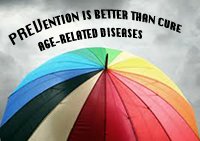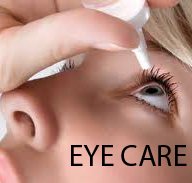Treating Depression
Depression - Page 2
Treating depression
Depression can seem worse than terminal cancer, because most cancer patients feel loved and they have hope and self-esteem.
David D. Burns
age-well.org > ¨prevent age related diseases > treating-depession
Steps to Take if You Have Symtoms
Step #1:
If you are feeling like hurting yourself or someone else then get professional help immediately. Call the emergency services or ask a friend or family member to take you to the emergency department of the nearest hospital. Contact your physician immediately. Do not wait until the next working day to reach your physician.
Step #2:
Understand that depression is a serious medical illness involving the brain, which impacts your functioning. Depression can happen to anyone, regardless of your age, race, sex, religion, culture or socio economic status. Accept this illness without self-judgment so you can take the proper steps to get better
Step #3:
Get a medical checkup to rule out other health problems causing or contributing to the depression. If you are clinically depressed, request the doctor to refer you to a professional who has experience with treating depression. There are two main treatments for depression: medicine (known as antidepressants) and "talk" therapy. Many individuals benefit from both treatments over a period of time.
Step #4:
Follow through with treatment as recommended by a knowledgeable professional. Be in charge of your well-being by speaking up and addressing any concerns with your physician and/or therapist. It is important that you feel comfortable with the treatment plan in order to embrace getting well.
How is Depression Treated?
When it concerns a person experiencing chronic pain, he often assumes that depression comes with the territory, and is untreatable. He or she "buys into" the myth that as long as they are experiencing chronic pain they must endure depression. However, treating back pain and treating depression are separate entities requiring different methods. It is important to understand that depression is treatable. With the proper measures, you may be alleviated of your symptoms, giving you the freedom to more fully participate in day-to-day activities, and to enjoy life.
Treating depression is becoming easier as better drugs and therapies are becoming increasingly available.
Therapies include medication and talk therapy:
Medicine:
Antidepressants may take several weeks before you begin to feel better. There are many different types of antidepressants and often the doctor must try several different types of medication before striking the right balance for you. It will be important that you stay in close contact with your physician and let him/her know how you are feeling. If you are feeling side effects such as nausea, blurred vision, fatigue, etc., you will want to bring this to the attention of your physician.
Talk therapy:
Treating depression using talk therapy involves participating in counseling sessions with an appropriate licensed professional such as a social worker, psychologist, psychiatric nurse or psychiatrist. Talk therapy helps you to change the way you think, feel and behave to support you in feeling better. Talk therapies that have been known to help with depression include cognitive therapy and interpersonal therapy or some combination of both forms of intervention. Treating depression with cognitive therapy has attracted a lot of attention recently. This treatment focuses on thought patterns, feelings and behaviors while interpersonal therapy addresses challenges in relationships.
Self Help Strategies to a More Positive You
A four-step plan to enjoy life and find fulfillment is outlined in my book, Tune Into Love. Here you will find "love boosters" to help you release fear and anxiety, which contributes and exacerbates depression. While this book is written to help individuals to attract their ideal intimate relationship, you will find that the four step plan outlined in my book can be used to create better health, better relationships, a more fulfilling career and prosperity of all kinds.
These four steps to treating depression include:
Step one: Create "feel good" moments
Learn how to sooth yourself and minimize the impact of ruffled feathers (yours or someone else`s) when stressful events occur. Understand how pets, friends and loved ones can help you create "feel good moments". Learn how to identify and side-step barriers which may impact your own sense of well-being. Transcend these barriers through the process of re-framing or restructuring your thoughts. Develop a gratitude list and add to this list daily to enhance your personal power and ability to feel good. Understand why gratitude is a thought pattern that can uplift you quickly and shift your emotional response to pain.
Step two: Identify your desires (desires such as "I want to feel better")
Learn to focus attention on what you want rather than the fear of not having what you desire (focus on feeling good rather than feeling bad). For instance, you can give attention to your pain by talking about it; however, research has shown that focusing on what we don't want can cause us to feel worse. It is better to give attention to the positive by saying, I want to "feel good", rather than I don’t want to "feel bad". In essence, whatever we give attention to becomes our experience.
Step three: Activate your intentions (intentions are strong desires coupled with strong belief that you can have what you want)
The more positive emotion we experience when thinking about a desire, the more likely we are to create it. Our bodies respond positively to positive emotion and negatively to negative emotion. Let yourself feel the full range of emotions, and then make an effort to shift your thoughts to a more optimistic perspective. Your body will respond accordingly over time. Whenever we place our peace of mind or happiness on hold waiting to feel better, that day never comes. Begin now to activate your intentions by taking steps toward living the life you desire. Start participating in activities that are in alignment with your doctor's medical advice. Make an effort to be uplifting to yourself and others. You will find that in time you will feel better emotionally by letting go of being a victim to your pain.
Step four: Release the outcome - Believe that you can
release the depression and you will respond better to therapeutic interventions. Research demonstrates that depression is a highly treatable diagnosis. Stay focused on this truth and you will more quickly enhance your own sense of well-being. Stay optimistic and refuse to give attention to what you don't want (pain) and focus attention on your desire to feel well.
Tips to Help You Treat Depression
here are some tips for day-to-day living while moving through a depression:
Set priorities and do what you canBreak large tasks into small onesTake everything at your own paceStay connected with others through phone conversations and activities that are appropriate for your health.Walk, walk, walk if acceptable to your physician. Walk at your own pace. Short, easy walks may help change your body chemistry to support you in feeling better. Try engaging in any mild exercise that has been approved by your physician.Remember that feeling better is a process and it takes time. Be patient with yourself. Treating depression is something which does not happen overnight.Practice the art of forgiving. Release judgment of yourself and others. Stop seeing things as "right or wrong", "black or white." Release the "shoulds" in your life and let yourself be inspired into action.Shift pessimistic thinking to hopeful thoughts. Ask friends and family who you trust to help you look at situations optimistically.Remember to focus on the good things in life and practice seeing every situation from love rather than fear.
Where Can I Get Help?
The following Information and referrals for help with depression are US based. but each country wll have equivalent organizations.Try asking your family doctor or check the internet or local phone book:
- National Alliance for the Mentally Ill (NAMI)
- National Mental Health Association (NMHA)
- National Institute of Mental Health (information on treating depression)
- American Psychiatric Association (APA)
- Depression and Bipolar Support Alliance (DBSA)
- National Association of Social Workers
- Self-help books (including some good books on treating depression)
- National Depressive and Manic-Depressive Association
- John's Hopkins InteliHealth
- Psychology Information Online (how to find a therapist)
- Support groups for depression (search the internet for a group close to where you live)
How Can I Help a Depressed Person?
There are several ways to support someone you know, who may be depressed:
- Understand that depression is a medical diagnosis and release myths about it representing laziness, personal weakness or that it is untreatable
- Offer compassion and empathy rather than sympathy. Be understanding, patient, and encouraging.
- Engage the depressed person in conversation, and do more listening than talking. Offer hope and respond to him with optimism. Assure him that treating depression can be successful but it takes time.
- Do not ignore remarks about suicide or remarks about wanting to hurt someone else. These remarks should be reported to an appropriate licensed professional who is used to treating depression.
- Invite the depressed person to participate in activities appropriate for his health, which may include going for walks, outings, movies, religious activities, hobbies, etc.
- See the person as strong and believe that he or she can transcend the illness. Your confidence in him will support the depressed person in tuning into his well-being.
- Encourage the person to get treatment and to stay in treatment per his doctor's recommendations
- Accompany the individual for an appointment with his doctor, if he would like you to support him in this way. Talk to the doctor about how s/he is treating the depression and what you can do to help
- When appropriate, assess and monitor if the depressed person is taking medication as prescribed
- Keep reassuring the depressed person that healing is part of a process, and that with time, and with treatment, he will feel better.
- Consider participating in couple, family and/or group therapy with a licensed therapist.
© 2006 by Margaret McCraw, Ph.D., author of Tune Into Love
About the Author
Margaret McCraw, Ph.D.: A licensed psychotherapist and motivational speaker, Margaret McCraw, Ph.D., LCSW-C, MBA, provides personal as well as executive coaching and training to a wide variety of organizations and professionals. In addition, as a faculty member of the American Holistic University, Margaret teaches in the doctoral program for Psychology.
With more than 25 years of experience as a therapist treating depression and other mental health issues, healthcare and business consultant, Dr. McCraw works with psychologists, marriage/ relationship therapists, social workers, nurses, mental health counselors, and life coaches. Her seminars focus on raising one's level of awareness, enabling individuals, couples and organizations to achieve their desires.
An inspiring speaker, she travels nationwide, sharing her insights on personal empowerment, manifesting one's dreams, relationship building and business development.
Margaret McCraw, Ph.D. can be reached for private phone consultations through her web site at www.tuneintolove.com or by calling 1-(877)-366-9111;All consultations are by appointment only!
Article provided by the Back Institite
age-well.org > ¨prevent age related diseases > treating depession
Return from Treating Depression to Age-well.org
Top of treating depression
Home to age-well.org
Enjoy this page? Please pay it forward. Here's how...
Would you prefer to share this page with others by linking to it?
- Click on the HTML link code below.
- Copy and paste it, adding a note of your own, into your blog, a Web page, forums, a blog comment,
your Facebook account, or anywhere that someone would find this page valuable.













